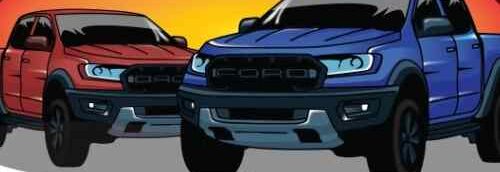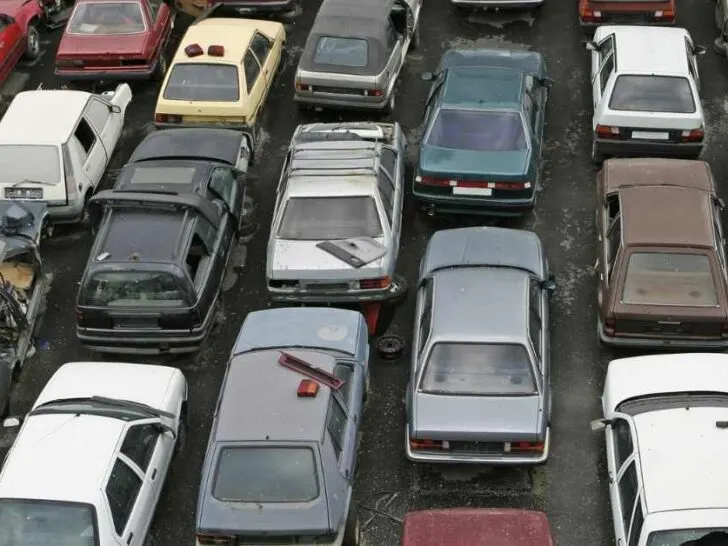Many people have no idea about salvage cars, and the dealers try to benefit after knowing about their understanding. However, the dealerships know about the problems associated with such vehicles and inspect them properly before making a final decision.
Do Car Dealers Take Salvage Cars? Car dealers do not take salvage cars because it requires a high repairing cost that can be nearly equal to the vehicle price. Moreover, these can also pose safety risks when the system fails to work on the road, leading to an accident. In addition, the vehicles with salvage titles have unknown history and offer no warranty like the newer ones. Furthermore, they have low insurance value, and banks are usually reluctant to finance them.
The lower prices of salvage vehicles attract many buyers, but they have many flaws that result in regretting the choice if you purchase them.
There is a possibility that people do not disclose the faults and provide you with wrong information about its functionality.
What are Salvage Cars?
These cars have salvage titles, which can reduce the overall cost and make it difficult to resell.
This title is assigned by the insurance companies or regulatory authorities to inform about the damage in the past.
When it has been through severe accidents, and a significant portion of the vehicle gets damaged, the insurance company repossesses it and puts a salvage title.
It is usually passed to automotive repair companies to fix the damage to a possible extent. Its status changes to rebuilt when it can be driven after repair and remains for a lifetime.
Why do car dealers avoid taking salvage cars?
There are many reasons to avoid purchasing damaged cars, which are declared a loss by the insurance companies.
Safety risks
Many dealers try to make more money by hiding the titles that can risk buyers’ lives.
Suppose the electrical system connected to some safety feature does not work on the spot, leading to a severe accident.
No one will pay for your loss when you have lost your life or put other nearby people at risk. Sometimes, they claim it to have a minor defect, but it is not the case.
High repairing cost
You have to pay a high cost for the repair, even if it seems to be a little mechanical damage.
A paint chipping requires a new paint that can cost you around $150 to $395 for moderate chipping and can exceed more than $500 for the larger chips.
Similarly, the cost of only one wheel replacement to replace the one that is leaky or has punctures or cracks is about $60 to $199, and all the wheels can increase the overall cost.
In addition, the damaged engine, transmission, hood, and other components can be pretty expensive for you to manage.
Unknown history
These vehicles have no confirmed record of a total number of accidents that helps indicate their value. Moreover, you do not know about repair history until the owner tells you honestly.
In the same way, you cannot get an idea of its stability and reliability, whether it goes smoothly on the road or collapses anytime.
No warranties
These have no warranties, and you have to pay dues for all types of damage. In addition, they are not responsible for any repair in the automobile after you have purchased it.
You cannot ask the dealership to pay for the cracks in tires and faulty electrical components because you are the owner.
Furthermore, it makes the dealers think of all the possible outcomes they have to face later.
No financing by banks
The banks do not prefer to finance salvage vehicles because it is understood that they are not going to get benefit from these damaged products.
It is obviously not a sensible decision to invest in an automobile that can collapse anytime. Instead, they prefer to invest in a durable automobile with a clean and clear title.
Such automobiles cannot cover only a few miles, and it will not be a wise decision to finance a repaired vehicle; that’s why they are showing reluctant behavior for this.
Low insurance value
The insurance companies do not cover these damaged automobiles. However, you can get limited coverage on those vehicles that are rebuilt.
It is difficult to detect the damage caused by the new accident because it has many defects that were repaired.
They can pay a small percentage of the repair cost after a collision, but they do not cover the damage when the fault is yours in an accident.
Do all car dealers take salvage cars?
Many dealers avoid buying cars with salvage titles as it is a completely bad decision to purchase a product with multiple defects whose repair cost is equal to its actual price.
It has only one advantage you can get a vehicle at a low cost, and some of the old dealers benefit and purchase it.
They can use their parts on other vehicles with defective parts to make them functional.
Similarly, CarMax is one of those dealers who can eagerly buy such automobiles, and companies in Texas and California are purchasing and selling them after repairing them.
However, you cannot expect newer dealers to take the risk of buying these automobiles. Some of them make a deal of purchasing these vehicles when you buy one from them.
Moreover, they will inspect it properly to ensure safety and the possible repairs that can affect the selling price.
So, most dealerships avoid purchasing such vehicles, but some companies are willing to inspect them properly.
What type of damage is responsible for salvage title on cars?
Different types of damages are responsible for the salvage title on the cars, like when it collides with another one on the road while going at high speed and causing severe damage.
Moreover, the smoke can also affect the paint and material when involved in a fire. As a result, it can be stolen in the past, and some of the original parts can be missing, which leads to decreased value.
Furthermore, floods are also responsible for affecting the fabric of seats and enter inside many components and make them non-function like a hood and doors are difficult to open and close.
It can also be used as a taxi in the past that has been heavily used and led to excessive wear and tear of the tires, engine, and other components.
Such incidents decrease the quality of the vehicle by damaging the paint and electrical components or leading to mechanical failures.
How to identify a salvage car?
Many people hide the title of salvage vehicles to get better prices while selling them to dealerships. However, it is not challenging to identify the damages and repairs in them.
Ask the seller to show the car’s title and look carefully at what is mentioned there. You can also check the history report when they try to make excuses to confirm the title.
In addition, paint chipping and patches of paint that are different from the rest of the body color indicate something fishy.
Take help from a trusted mechanic who can help you determine the damages and the repairs by inspecting all the components in detail.
Furthermore, you can check the functioning of electrical components by riding as faulty components indicate that it has been damaged due to flooding.
Certified Automotive Parts Association (CAPA) sticker and misaligned wheels, doors, and hood indicate that it is a salvage car.
Moreover, you can also track the history by its VIN, which tells about the owners who have purchased it in the past and all the related data.
Is it illegal to hide a salvage title on the car?
The purpose of adding a salvage title on an automobile is to indicate all the possible flaws so that the dealers cannot deceive the buyers and charge them more for a damaged product.
It is illegal to hide the title from any automobile and make wrong statements about it.
The dealers have to tell all the details, including the damages and the repaired components so that the buyers are aware of the safety risks.
Moreover, you can claim an automobile legally if someone has made false statements and tries to hide the accurate title from you.
It is better to get better knowledge about how to identify the title as many dealerships are experts in selling defective automobiles.
How much value do salvage cars lose?
The title of salvage or junk decreases the vehicle’s resell value up to a great extent. However, there is no such increase in its selling price even after repair and rebuilding.
These automobiles lose their market value from 18% to 45% after getting such a title as they are not in good condition or their parts are not original or are being replaced.
You can try your luck by listing it on online markets to grab the customers who can pay better value.
However, it is hard to find and convince customers who can purchase it at a reasonable cost. You can expect almost $70,000 to $80,000 for an automobile worth $150,000.
Can you trade in a salvage car?
You can trade in the automobiles with a salvage title, but the choice of dealers matters a lot whether they are interested in purchasing a damaged product.
Many dealers like CarMax and those operating in El Paso and Alameda Avenue are dealing in such vehicles at a large scale, and their business is based on purchasing and selling them.
All the dealerships will not show interest in its trading because it is challenging to sell them later.
However, some of them keep their interest as a priority and ask you to get a vehicle of a reasonable price and resell their damaged one at the lowest possible rate.
What do car dealers say about salvage cars?
I surveyed 659 car dealers to know their opinions on purchasing a salvage car, whether they consider it or avoid its ownership.
Out of 659 people, 468 people (71%) said they do not take a vehicle with such a title as it is a bad deal resulting in a financial loss as their repair cost is much higher.
However, 152 people (23%) said they would consider it after a detailed inspection only to check the damage and then decide.
While the remaining 39 people (6%) said they could purchase it if they have a low cost and its components are in functional condition as they can use their parts in other automobiles of the same model.
As their title lasts forever, you cannot get a better profit margin on these vehicles.
“I have never considered a damaged automobile because there is no such big profit margin in selling them and their title has a negative impact on them.”
Not every damaged automobile deserves to be purchased, but some have minor damage that can be avoided.
“I have checked many vehicles with this title, but a few of them were good enough to purchase because they have minor defects and their parts were functional.”
These vehicles are sometimes worthy as you can use their components in luxury automobiles to get better rates after purchasing them at a low cost.
“I prefer to purchase such automobiles to use their parts on my old vehicles to improve their selling value because these vehicles are just junk and cannot be used to drive.”
Related Articles:

